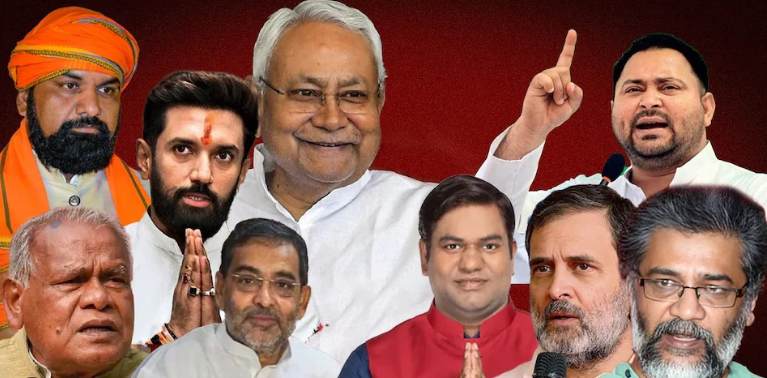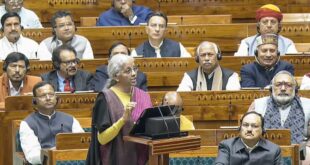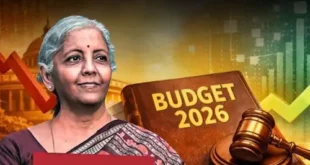 Dr. Utkarsh Sinha
Dr. Utkarsh Sinha
“Fifty reasons are found for success, but a thousand for criticism.” After the unexpected results of the Bihar Assembly Election 2025, the round of analyses continues unabated—everyone is debating the winning strategy, the reasons for defeat, and the fairness of the democratic process. At the centre of the ongoing debates are the failures of the opposition, questions regarding the transparency of the Election Commission, the election results themselves, and the role of the SIR process.
In the Bihar election, the opposition—especially the Mahagathbandhan (RJD, Congress, Left parties, etc.)—suffered a crushing defeat, and several major reasons are being cited for this. The lack of clarity and a permanent organisational structure under the leadership of Tejashwi Yadav and Congress kept coming to the fore repeatedly. From pre-poll seat-sharing to ground-level strategy, campaigning, and the presentation of issues, the opposition remained weak on every front. The Mahagathbandhan completely failed to present a solid alternative or trustworthy policy against the government. On the other hand, the NDA’s women-centric schemes, direct financial assistance, and the ‘Lakhpati Didi’ programme had a deep impact. As a result, the RJD could win only 25 seats, Congress a mere 6, and the entire Mahagathbandhan fell apart completely.
At the same time, these results also indicate that the BJP-JD(U) alliance succeeded in bringing different sections of society into its fold in a much better way. The opposition could neither save its own vote bank nor attract any new segment.
Indeed, if one looks at the results, it would be fair to say that in Bihar neither caste equations worked, nor did corruption in development works find any space, nor have issues like migration, inflation, and unemployment remained major concerns in society any longer. On the contrary, the freebies distributed during the election season proved far more effective, and the common people seem happy with them.

Over the past several elections, we have been seeing that the issues which analysts used to consider important are now proving ineffective in election results. The problems caused by demonetisation, the closure of small businesses, decline in income, inflation, and lack of job opportunities have now become irrelevant—at least the election results are pointing in that direction.
Yet there is another side to the picture that does surface from time to time with evidence, but a strong system covers it up with the same efficiency with which Israel’s Iron Dome neutralises missiles. A section of the upper-class society and the media takes this task upon itself without delay, and then those facts and issues fail to make any impact on the general public.
There is no doubt that the Modi-Shah-led Bharatiya Janata Party has given Indian electoral politics a completely new model.
But even amid the noise of this victory, some questions are raised after every election. Unfortunately, at this moment India’s Election Commission is perhaps the institution facing the most discussion and the least trust.
After the election, as much discussion took place about the weakness of the opposition as about the transparency and fairness of the electoral process and the voter-list purification exercise under the Special Intensive Revision (SIR). In Bihar, the Commission carried out an intensive revision of the voter list under SIR, in which names of deceased, migrated, and bogus voters were to be removed. During this period, approximately 65 lakh names were deleted—it was stated that these included 22 lakh deceased, 36 lakh migrated, and 7 lakh bogus voters.
After the publication of the final list, there was an increase of about 3.75 lakh in the number of voters compared to the figures given by the Commission earlier and after the election, which led the opposition to raise questions. Although the Election Commission clarified that this increase was due to valid applications being added and new names that came after the final nomination, a lot of questions were raised even on this reply.
The Election Commission removed voters’ names in many constituencies. In several seats, between 20,000 and 60,000 votes were cut—including Motihari (54,013), Gopalganj (66,270), Balrampur (29,254), Mahnar (18,913), Supaul (31,259). After the results, analysts noticed that on many seats the victory-defeat margin was only in thousands or hundreds, but the number of deleted votes was many times higher. For example—Balrampur won by 389 votes, 29,254 votes cut; Mahnar (161-vote margin, 18,913 votes cut); Supaul (456-vote margin, 31,259 votes cut).
Such questions are being raised on as many as 128 seats. Because of this, a large section of the public is asking whether, if the deleted votes belonged to one particular community—such as Dalits, minorities, or opposition supporters—the results could have been completely reversed. The Commission claims that the deletion of votes was part of the purification process and was not in favour of any party. Yet when such a huge number—many times the margin—decides victory or defeat, doubts about fairness are bound to arise.
Because of SIR, questions have also been raised on several seats regarding corruption, bias, or technical errors in the voter list. Local people and political parties filed complaints that the voter-list process was not transparent, and many people’s names were removed without any notice.
On seats with such narrow margins, if polarisation or bias occurred in the voter-list purification process, it is natural for suspicion to fall on the election results. The opposition has called it tampering with the electoral process and a danger to democracy, while the Commission has described it as transparent and constitutionally valid.
In the Bihar Election 2025, on the one hand the weaknesses of the opposition parties became a major reason for their defeat, while on the other hand the deletions in the voter list under the Election Commission and SIR have raised serious questions in the public mind about the transparency of the electoral process.
It is clear that to keep democracy strong, political parties will have to pay attention to organisation, campaigning, and policy, while all processes of the Election Commission must be conducted with complete transparency, inclusiveness, and citizen participation. Only through independent audits, public disclosure of data, and voter awareness campaigns can trust in the electoral process be restored.
 Jubilee Post News & Views
Jubilee Post News & Views





